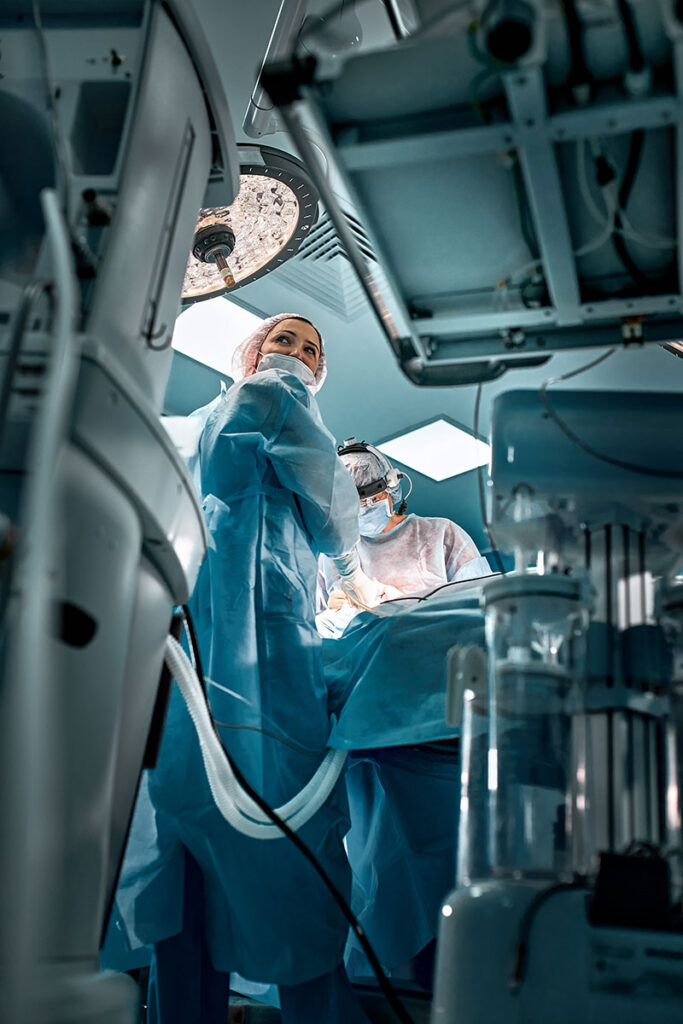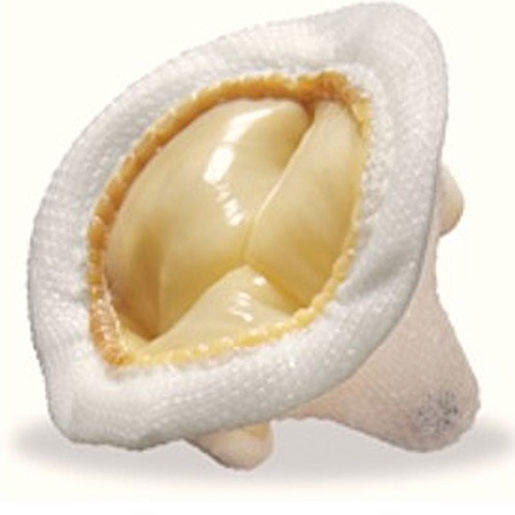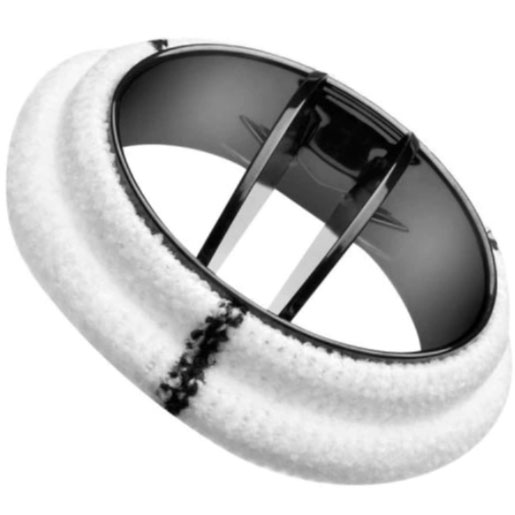Grounded in contemporary cardiac biomechanics, not legacy aortic paradigms.
Unlike traditional circular prostheses derived from aortic geometry, VORTICA is specifically engineered for the mitral position — integrating native asymmetry and left-ventricular vortex dynamics into its design.
Designed exclusively for the mitral annulus, not adapted from aortic prototypes, VORTICA aligns with the native, asymmetric, D-shaped anatomy and intracardiac physiologic flow.
Developed through advanced computational modeling and flow analysis, VORTICA restores physiological vortex formation that conventional circular valves cannot reproduce.
The surgical mitral replacement market remains robust, driven by increasing durability expectations in younger cohorts. Mechanical prostheses continue to outperform bioprostheses in longevity and hemodynamic consistency, sustaining long-term clinical demand.
As a surgically implanted device leveraging established materials and fixation principles, VORTICA offers a streamlined regulatory pathway and shorter development cycle compared with transcatheter technologies.


Biological made from soft animal tissue (porcine or bovine).
No anticoagulant therapy → better QoL
Durability ± 10 year → redo surgery → patient age > 65

Mechanical made from rigid metal alloy.
Anticoagulant therapy → worse QoL
No durability limits → no redo surgery → patient age < 65
Yet none has been conceived specifically for the mitral position.
No mechanical valve currently on the market is purpose-built for the mitral position. Existing prostheses, derived from aortic designs, disregard the valve’s native asymmetry and its role in left-ventricular vortex dynamics.
The surgical mitral market remains strong, as anatomical complexity continues to limit fully transcatheter alternatives. Mechanical valves retain superior durability and performance in younger patients, reinforcing the need for durable surgical options.
Mythralica addresses this unmet need through disciplined engineering and evidence-based design — combining physiological relevance with a pragmatic, cost-efficient development pathway.
Conceived specifically for the mitral valve, VORTICA represents a fundamental re-engineering of mechanical valve principles — restoring physiologic flow while maintaining the durability that defines mechanical technology.
The concept addresses a consolidated yet expanding surgical market with limited direct competition and enduring clinical demand. Built on rigorous hemodynamic science and pragmatic design, VORTICA offers a credible path toward establishing a new benchmark for mechanical mitral valve replacement.